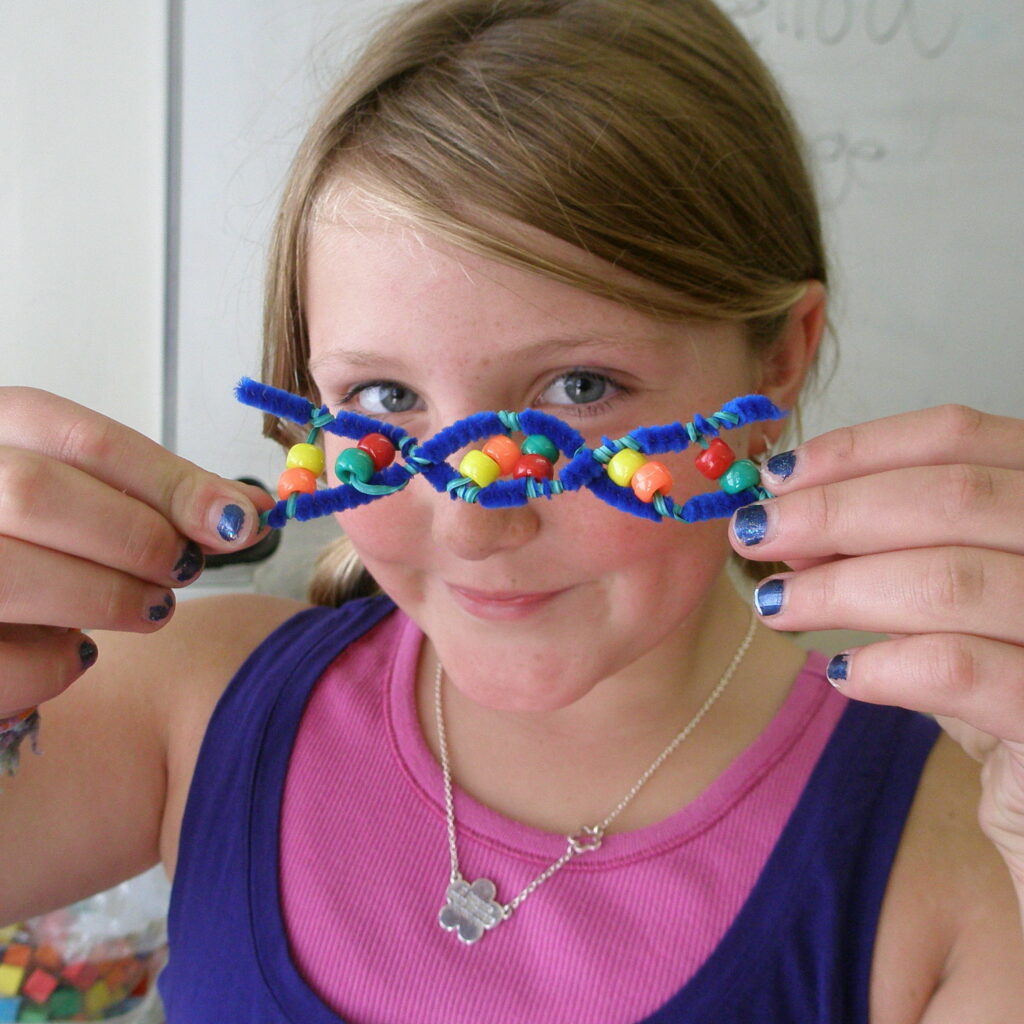
Summertime is a wonderful time for children to learn things they are not usually exposed to during the school year. The possibilities are endless, but the field of genetics stands out among most of them. As a Ph.D. Candidate at UCSF in Biophysics, I may be biased, but I believe genetics is a great subject to learn. It’s especially true at Celsius and Beyond’s genetics summer camp. Through its genetics camp, kids explore new topics in biology, learn about how their body functions, and develop their scientific reasoning.
In Celsius’s genetics camp, children ages 8-14 years old, get to perform high-level biology research early in life. The experiments and the tools we do are similar to what many research labs at universities and companies do every day. Using electrophoreses, centrifuges and PCR machines, we extract DNA from our cheek cells, amplify specific genes, look at them on gels, and even sequence some of our DNA! These experiments are performed mostly in college-level biology courses. Students at Celsius get to experience what a real biologist does and how real biology research works. In many cases, this early exposure to biology research can spark a new love of biology and genetics, and can lead to further study of biology in the future. When students know they’re interested in biology research early, they have more time to explore opportunities for studying biology. For example, some academic labs have high school student volunteers working in the lab to gain experience and learn more about research careers.
At Celsius, children learn how genetics can help them understand their own bodies. By extracting their own DNA and isolating their maternal HVR1 gene, students learn how genetics influence their appearance, their health, and how the environment can shape it as well. With this information, kids can grow to become educated patients and can take an active role in their personal healthcare. In today’s world, genetics knowledge is no longer a “nice to know” subject. It is essential and important to children and adults alike.
Biology research teaches students many valuable skills that are applicable to many different situations in life. Problem-solving skills, for example, are a large part of research science. Scientists have tons of questions about how life works or how certain things function, and must use problem-solving skills to decide what experiments will help answer these questions. Guiding students through the process of goal setting and experimentation allows them to decide how to appropriately find the answer to the questions they may have in the future. Students also must problem solve when our experiments do not turn out as expected. We always discuss the predicted results of an experiment before performing the experiment, so we know what results may be out of the ordinary. When the results don’t match the prediction, we must go back, think through the experiment, and decide what can be done differently or what to make of the results. This is another form of problem-solving that we can apply to many situations in life.
Another important skill taught by biology research is critical thinking. Students must look at their data on software called Geneious, the same software scientists use for their analysis. Students need to decide what their results mean. They also must decide if the results are good quality, what information does the data show, and if the experiment they did should have produced these results. These judgment calls are sometimes quite hard, and developing the skills to decide these things takes time and practice. Celsius and Beyond Genetics summer camp Bay Area is a great time to develop these skills as we walk through each result and discuss how these results may have occurred. The ability to step back and look at something objectively to evaluate or make judgment calls is extremely important in many other fields and careers. These skills help students think rationally and objectively and help them develop a healthy amount of skepticism in what they read or hear.
After attending our genetics science camp Bay Area 11 and 12 year olds know more about genetics than most adults. With such a powerful head start, they are better prepared for the many life challenges awaiting them.
